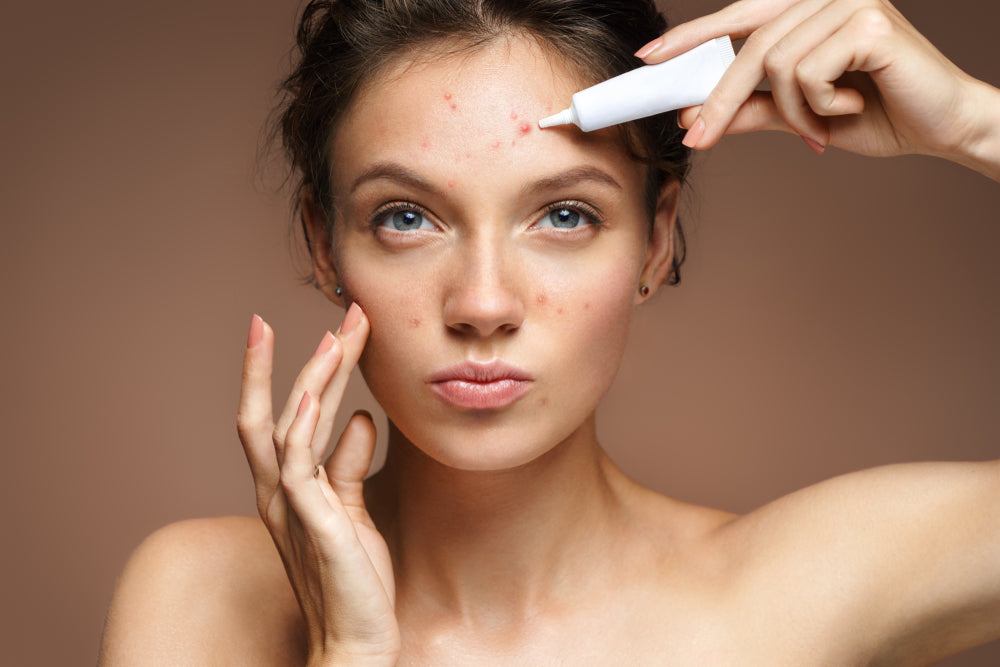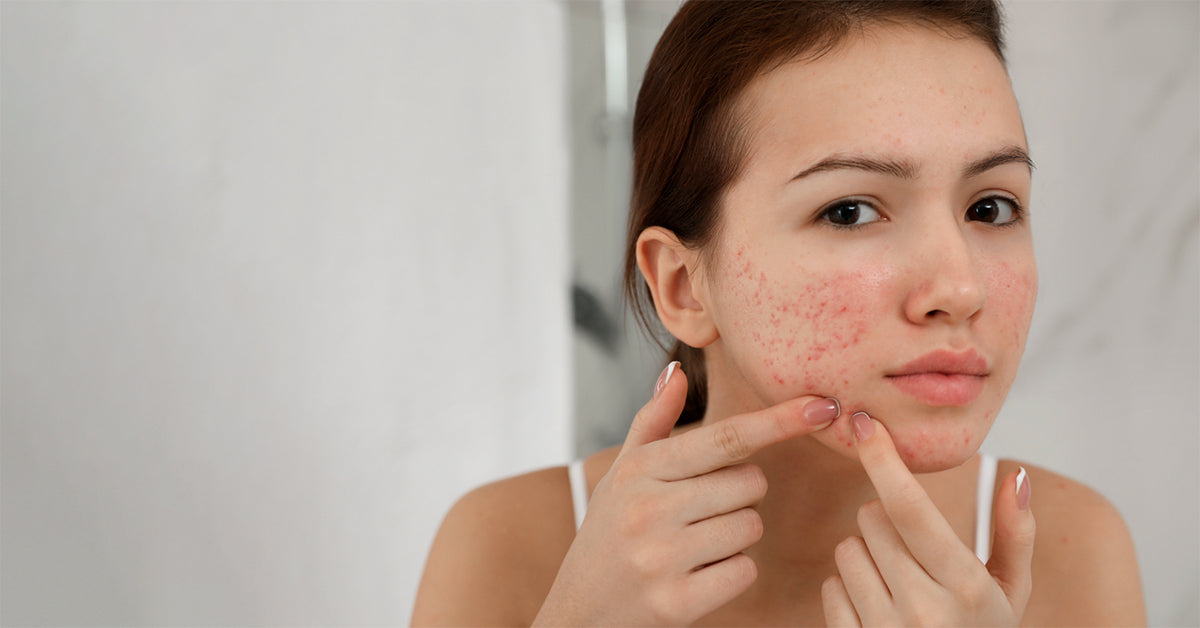Adult Acne Causes and Common Treatments
Acne, also known as acne vulgaris, is a common chronic inflammatory skin condition that affects both males and females. In the United States alone, it affects nearly 50 million people per year. Even though it usually occurs during adolescence and early adulthood, it can essentially develop at any age. Adult acne is acne that occurs after adolescence, typically after the age of 25. This condition can present itself as comedonal acne (commonly referred to as whiteheads or blackheads), pustules, and nodules. Acne can be difficult to manage and can also result in both acne scarring and hyperpigmentation of the skin. Because it usually affects the face, the impact of acne on an individual is significant and can affect a person’s self-esteem.

Adult Acne Causes
Although the pathological mechanisms behind the development of acne are not well understood, it is agreed that both genetic and environmental factors play important roles in its development. If a person has a strong familial history of acne, it is more likely that he or she will also develop acne. In terms of the environment, any condition or substance that can put stress on the skin or clog the pores can lead to acne including excess dirt and grime from pollution, ultraviolet radiation from the sun, and smoking. Common causes of adult acne include:
Hormonal Disorders or Undiagnosed Medical Conditions
Certain hormonal disorders and genetic conditions can predispose a person to develop acne. For example, hormonal changes associated with the menstrual cycle can lead to acne. Another hormonal condition that can cause acne is PCOS or polycystic ovarian syndrome. This condition often leads to increased androgen levels such as testosterone in the body causing acne. Fortunately, when adult acne is related to a medical condition, once it is diagnosed and treated, the acne typically resolves.
Food Intolerances or Dietary Sensitivities
Certain foods have been associated with the development of acne in certain individuals. For example, studies have shown that diets rich in sugar and fat are associated with acne. Dairy products such as milk have also been implicated. This is likely due to an increase in insulin-like growth factor-1 (IGF-1) in addition to androgens. Overstimulation of the IGF-1 hormone is associated with a hyperglycemic diet. This substance stimulates the proliferation of cells, and increases oxidative stress and inflammation, thereby promoting acne development. Increased production of androgens also because of increased insulin-like growth factor is also associated with increased production of sebum. Being obese and the resulting insulin resistance are also linked to acne.
Stress
Stress is associated with acne development as well. Stress increases the levels of cortisol in the body, the hormone responsible for the stress response. It can increase the oiliness of the skin and can cause inflammation. Aside from this hormone, stress can also lead to habitual skin picking causing further inflammation, acne scarring, hyperpigmentation, and anxiety.
Quality of Sleep or Lifestyle
The quality of sleep, or the lack of it, is also associated with acne because of the stress and hormonal imbalances associated with it.
Hair and Skin Care Products
Lastly, using certain skin or hair products can contribute to acne, especially among those with sensitive skin. Ingredients in these products can cause a skin reaction or clog pores. It is important to use products that work well with your skin type, like the good skincare products at Collagenil.

How to Treat and Prevent Adult Acne
Now that we have discussed the possible causes of acne, we can then identify ways to both treat and prevent acne.
-
Identify Your Acne Triggers!
First, identify the triggers that lead to acne. This can be an environmental exposure (i.e. pollution or poor air quality), diet, or a specific skincare product or ingredient. Doctors often recommend elimination diets to identify food sensitivities. Elimination tests can also be conducted with your cosmetics to identify adverse reactions or pore-clogging ingredients.
-
Improve Your Eating Habits and Implement Healthy Lifestyle Changes!
In terms of diet, consider reducing the consumption of high glycemic foods, sugars, dairy products, and excessive alcohol. Try to also improve your quality of life by reducing stress, getting a good night’s sleep, and exercising regularly.
-
Practice Good Hygiene!
Your daily habits have the greatest impact on the quality of not only your life but your skin as well. Practice regular face washing followed by a good skincare regimen. Unwashed tools breed bacteria and trap dirt. Ensure your makeup brushes and sponges are cleaned regularly. Also make sure to regularly wash your sheets, towels, and clothing.
-
Improve Your Skincare Regimen!
An effective skincare regimen is not important for only treating acne, but also for preventing a variety of skin conditions. Collagenil offers many skincare products for acne-prone skin, including the Relux Soft-Peeling Antiaging cream for hyperpigmentation, and the Relux Cream for skin lightening.
A great product for acne-prone skin is Collagenil’s Active Mat Daily Cream. This product contains SEBARYL®, a potent seboregulation complex. This ingredient regulates sebum secretion by inhibiting 5α-reductase, an enzyme responsible for the conversion of testosterone to its active form. Collagenil’s Active Mat Daily Cream is a gel-cream facial moisturizer that blends into the skin to provide a matt finish. Unlike other acne treatments, Collagenil’s Active Mat Daily Cream does not cause the re-emergence of hypersecretion or excess sebum.
-
Visit Your Dermatologist!
Dermatologists are amazing. They can help treat existing acne, avoid scarring and prescribe acne treatments to improve your skin.
Adult Acne is a common skin condition that recently increased in prevalence. Various factors have been implicated in its development. Addressing the possible contributing factors in addition to following an effective skincare regimen is important in the prevention and treatment of this skin condition.
Read our blog for more anti-aging tips and tricks!
